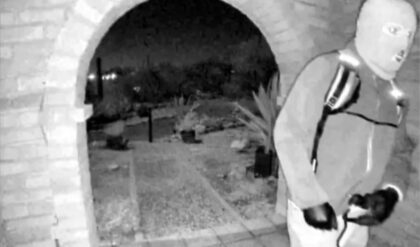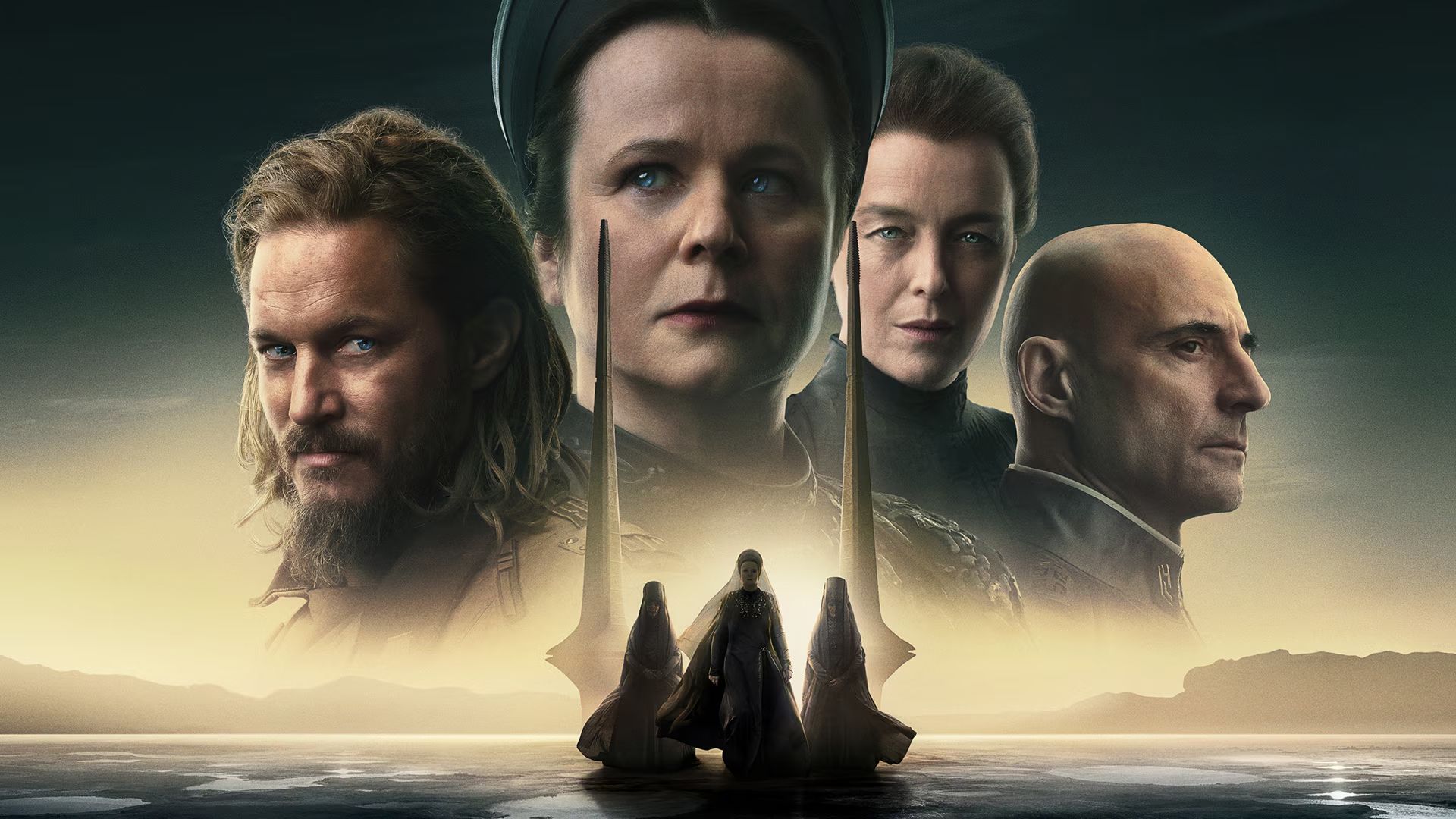
Never mentioned in the Dune movies, the Butlerian Jihad had a cataclysmic effect on the world inhabited by the great Houses, such as House Harkonnen and House Atreides. Causing a revolt against machines, the conflict made the very presence of advanced robotics into a treasonous offense. While this backstory is only shown briefly in the new show’s first episode, it hints at the past of the Dune universe being expanded in another way.
What Is Dune’s Butlerian Jihad?
The Dune TV Show Briefly Shows Its Events
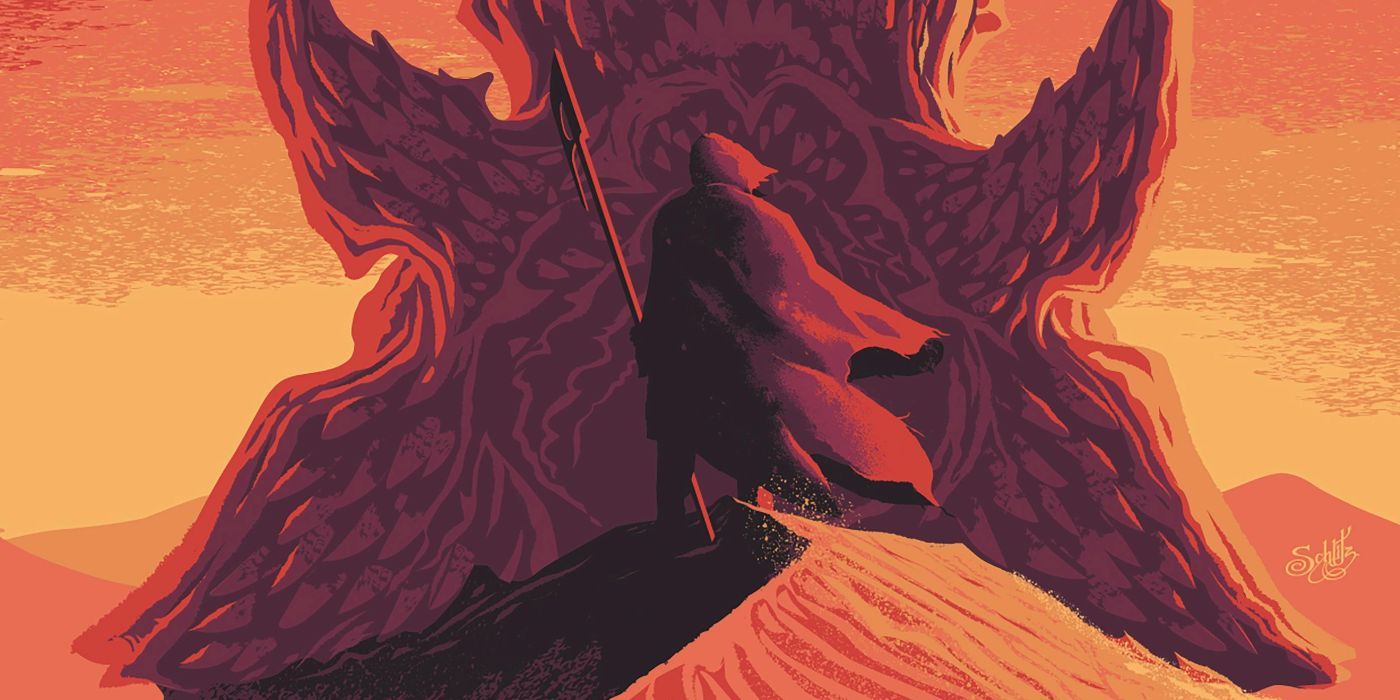
Long ago in the world of Dune, humanity created incredibly advanced mechanical constructs to aid them in their everyday tasks. These developed a form of sentience and came to be known as “thinking machines,” but they were far more advanced than this moniker suggested. More than simply robots and automatons, these creations came to replace humanity in an intellectual sense. Comparisons could be drawn to modern issues with AI or the robots in the Terminator franchise, but this is largely an oversimplication. Concepts such as mathematics, processing and data entry were all done by these machines, relieving humanity of these duties as a whole.
In the original Frank Herbert Dune novels, the danger of the thinking machines is that the proverbial elites used them to their advantage. To quote the books, humanity giving their thinking over to the thinking machines “permitted other men with machines to enslave them.” In a sense, it was more analogous to politics or even religion, with a politician or a clergy member, or even a deity being the person who thinks on behalf of the masses. This falls right in line with the premise of the Dune series, which speaks about the danger of leaders and so-called god-men.
Realizing this, humanity rose up against the thinking machines and outlawed any sort of technology similar to them. Said series of battles was known as the Butlerian Jihad, and it was named after Manion Butler, the first “martyr.” Manion was a notable part of the series’ backstory, and the families of the Great Houses (Harkonen, Corrino and Atreides) can trace their lineage back to him. After countless deaths, humanity finally defeated the beings that had come to lord over them. The mentats replaced the thinking machines, with these people essentially being living computers.
This isn’t quite the setup used in the new prequel TV series, however. In Dune: The Butlerian Jihad (written by Brian Herbert and Kevin J. Anderson) and the series Dune: Prophecy, the Butlerian Jihad against the thinking machines is portrayed as a Terminator-esque war with the machines. This fact is shown in the first few moments of the first episode of Dune: Prophecy, establishing that the later novels (which weren’t handled by the deceased Frank Herbert) are still being used as source material.
For this reason, The Butlerian Jihad as a novel is somewhat controversial among fans, as are almost all of the Brian Herbert books. Some fans consider them to be too contradictory to what was established in Frank Herbert’s books, with most just seeing them as inferior in quality. Nevertheless, Sisterhood of Dune is the main inspiration for Dune: Prophecy, so using elements of the other Brian Herbert novels makes sense.
How Dune: Prophecy Portrays the Butlerian Jihad
Dune’s Prequel Showcases the Ramifications of the Conflict
As noted, the new series Dune: Prophecy takes place after the events of the Butlerian Jihad, with the thinking machines already defeated. This was a true war, with the machines taking the form of seemingly gigantic behemoths that humans fought against. While society had already begun to move on from what they achieved, the majority of the adults in the show’s time period are more than aware of what the thinking machines were capable of.
This is shown in the young husband of Princess Ynez Corrino, who’s only a nine-year-old boy. He remarks that his own father believes that others are far too superstitious and extreme concerning the thinking machines, and that society might still have some use for them. Of course, the boy’s foolhardy actions showcase just how much many still fear and despise these once ubiquitous technological beings.
The Richese prince pulls out a small toy from his pocket, with this thinking machine object manifesting as a sort of robotic pet. Many of the adults at the royal wedding note that such creations were supposed to have been destroyed, and the ensuing fracas when the robot runs wild sends the crowd into a panic. Despite how innocuous the toy is, the adults are all shocked by its mere presence.
It’s not until former soldier Desmond Hart essentially slays it that they calm down, and the ensuing words ensure everyone that it will be destroyed. Even Ynez, who’s a young lady, lashes out at her new husband for his little plaything. As for the mentats, they’re briefly mentioned in the show, but have yet to make a major appearance. Overall, however, society has already replaced the use of the thinking machines, and while advanced technology is still present, it isn’t portrayed as being sentient in the same way as these robots.
Will Dune: Prophecy Show More of the Butlerian Jihad?
The Prequel Series May Get Its Own Prequel
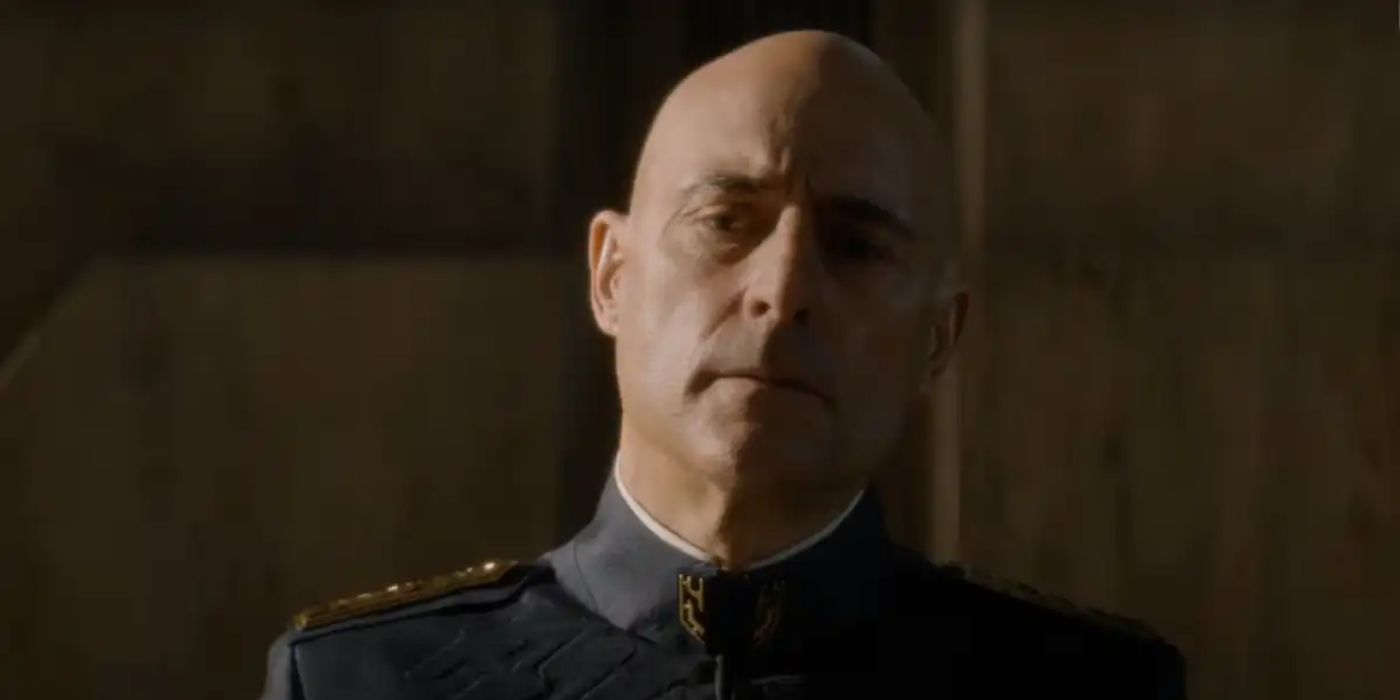
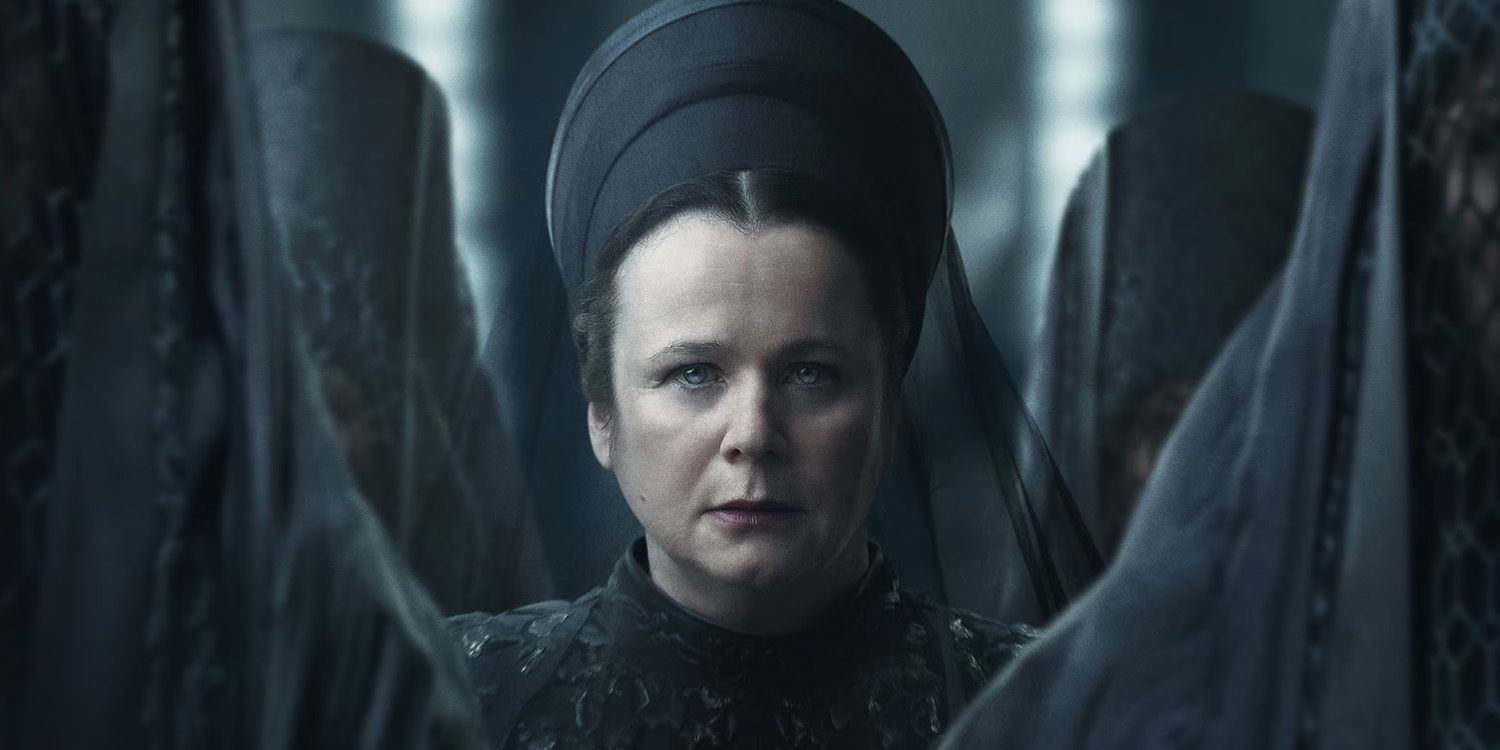
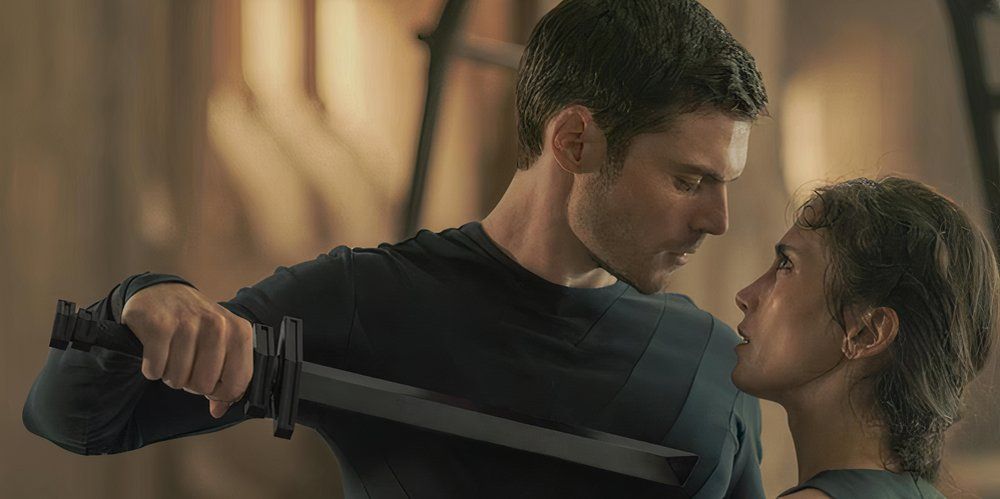
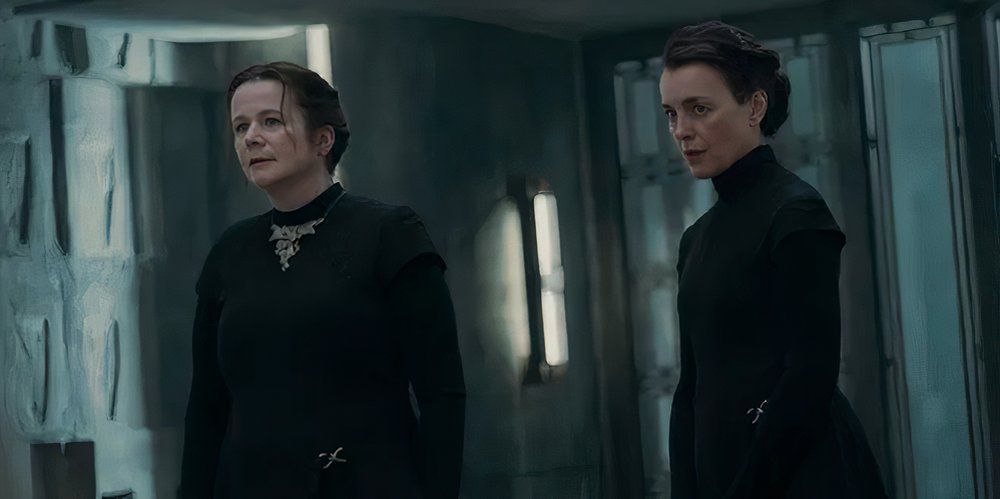




For now, any future presence of the thinking machines in Dune: Prophecy will likely be minimal. After all, there might not be much in the way of plot relevance, given that this time period in the world of the series has already passed. At the same time, the fact that a child has a thinking machine toy showcases that, at least somewhere, these sorts of machines still exist en masse. This could very well be brought up down the line and used against the Great Houses and the Bene Gesserit, with the societal discord being used to sew seeds of chaos.
Given that Desmond Hart seems to be antagonistic towards the sisterhood and the fact that he took down the thinking machine in this instance, he could be the one to use another one against them. Likewise, the Butlerian Jihad itself has great narrative potential for its own series. It’s highly unlikely that Dune: Prophecy will feature more flashbacks, so a Dune: Butlerian Jihad TV series may be needed to further flesh out these events.
If the current prequel TV show is successful enough, this could definitely be in the works for HBO and the Max streaming service. After all, there was an entire Dune: The Butlerian Jihad novel, so if Sisterhood of Dune could be loosely adapted into a show, the same could go for that book. This, of course, depends on how successful the current TV show is, but the recent Dune movies that the series serves as a prequel to have only grown in massive popularity.
Further prequels could expand on the world of the franchise in an organic way, showcasing elements that the movies won’t cover. Ironically, it would make Dune into a true competitor to the Star Wars franchise that it inspired, albeit with actually well-received prequels. In the future, the movies may finally reference the events of the Butlerian Jihad, but for now, they might work best as a story thread reserved for the current prequel and any similar spinoffs.
Dune: Prophecy Episode 1 is now streaming on Max.


